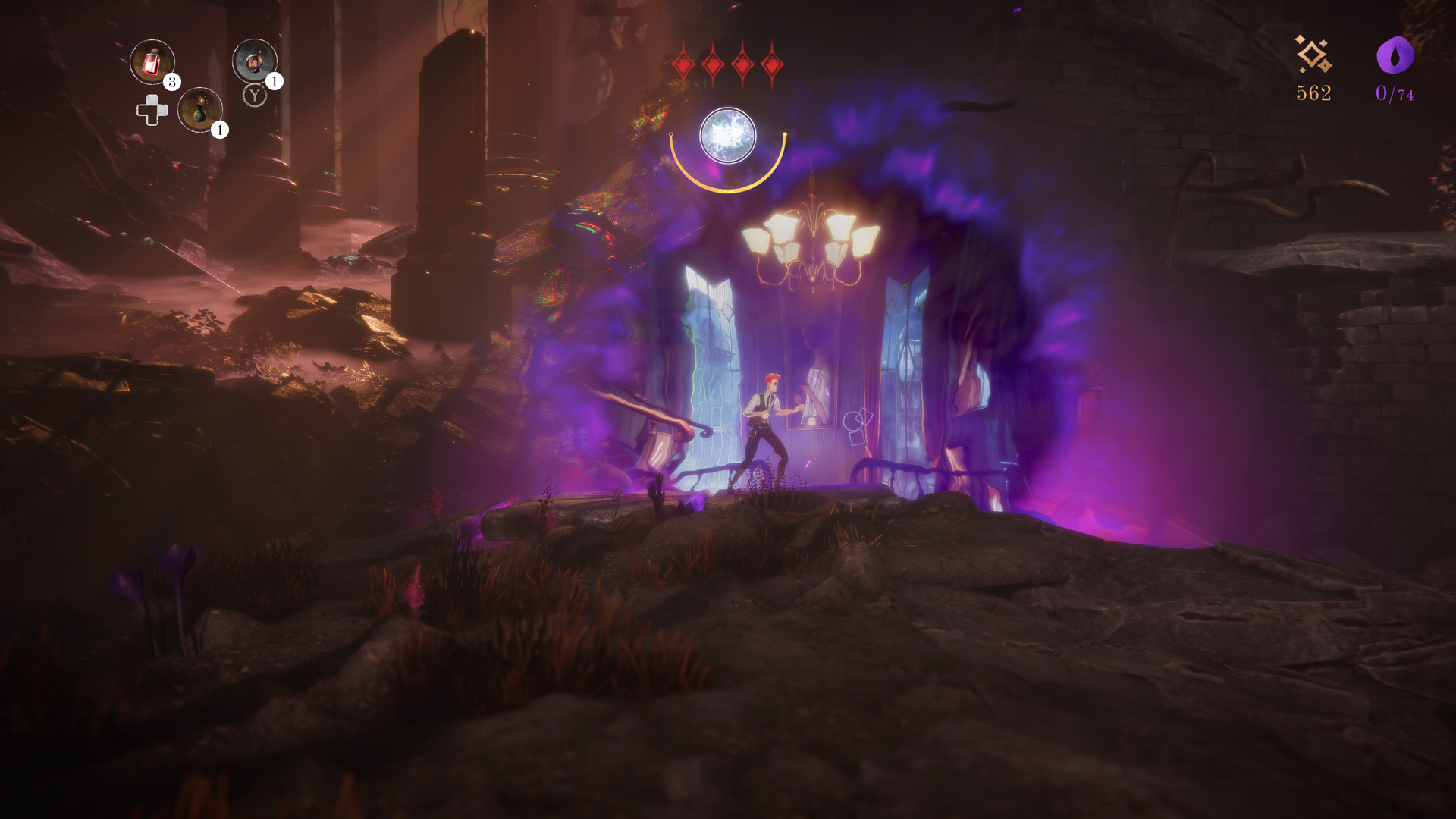
Genre : Metroid-vania Themes : Cosmic Horror Release Info : Xbox Game Pass Other Tags : Original Screenshot Achievements : trueachievements.com
MASTERED

🍒 XSX screen capture
Facts
The default exploration setting hides door types and missing items on the map. The 'I hate being lost' setting shows that information. Highly recommended.
Analysis
The sound design and music is incredibly repetetive, and it really gets on my nerves. There is constant roars in the background, constant drum loops on the map, and I just want it all to take a break.

